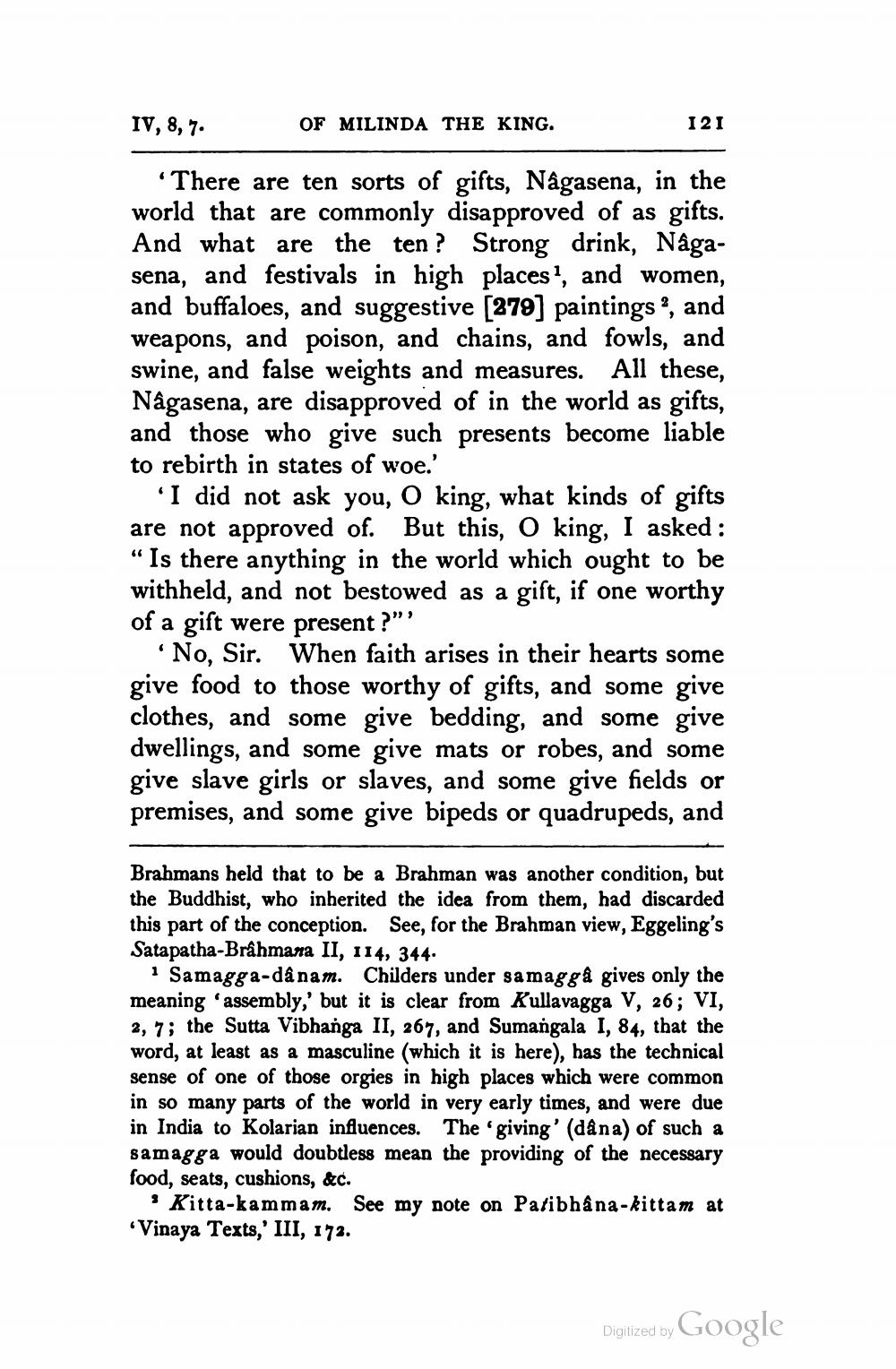________________
IV, 8, 7.
OF MILINDA THE KING.
I21
There are ten sorts of gifts, Nagasena, in the world that are commonly disapproved of as gifts. And what are the ten ? Strong drink, Nâgasena, and festivals in high places?, and women, and buffaloes, and suggestive [270] paintings, and weapons, and poison, and chains, and fowls, and swine, and false weights and measures. All these, Nâgasena, are disapproved of in the world as gifts, and those who give such presents become liable to rebirth in states of woe.'
'I did not ask you, O king, what kinds of gifts are not approved of. But this, O king, I asked: "Is there anything in the world which ought to be withheld, and not bestowed as a gift, if one worthy of a gift were present ?":
'No, Sir. When faith arises in their hearts some give food to those worthy of gifts, and some give clothes, and some give bedding, and some give dwellings, and some give mats or robes, and some give slave girls or slaves, and some give fields or premises, and some give bipeds or quadrupeds, and
Brahmans held that to be a Brahman was another condition, but the Buddhist, who inherited the idea from them, had discarded this part of the conception. See, for the Brahman view, Eggeling's Satapatha-Brahmana II, 114, 344.
· Samagga-dâ nam. Childers under samaggå gives only the meaning 'assembly,' but it is clear from Kullavagga V, 26; VI, 2, 7; the Sutta Vibhanga II, 267, and Sumangala I, 84, that the word, at least as a masculine (which it is here), has the technical sense of one of those orgies in high places which were common in so many parts of the world in very early times, and were due in India to Kolarian influences. The 'giving' (dana) of such a samagga would doubtless mean the providing of the necessary food, seats, cushions, &c.
• Kitta-kammam. See my note on Paribhana-kittam at •Vinaya Texts,' III, 172.
Digitized by Google




